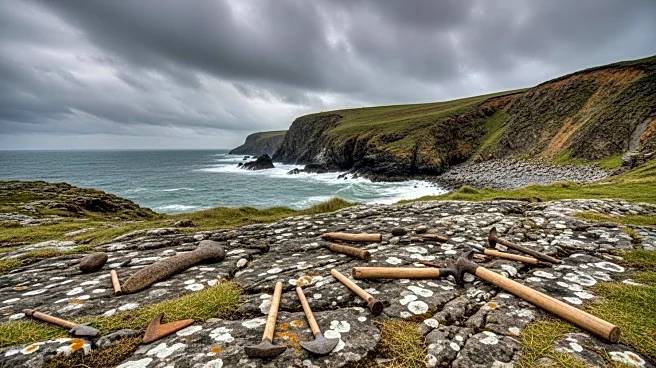What is the story about?
What's Happening?
Recent archaeological studies have revealed that ancient hominins took significantly longer to settle in the British Isles compared to other regions outside Africa. Evidence suggests that hominins were present in Africa as early as 6 to 7 million years ago, but the oldest widely accepted evidence of hominins outside Africa dates back to 1.8 million years ago in Georgia. Despite this, hominins only began settling in Britain around 700,000 years ago, a delay attributed to the challenging climate conditions. The British Isles, known for their cold and damp climate, posed a considerable challenge for early human settlers. Recent excavations at Old Park near Canterbury have uncovered stone artefacts dating back between 773,000 and 607,000 years ago, indicating repeated occupation during glacial periods.
Why It's Important?
The delayed settlement of hominins in the British Isles highlights the impact of climate on human migration and settlement patterns. Understanding these patterns provides insights into the adaptability and resilience of early humans in harsh environments. The findings also contribute to the broader narrative of human evolution and migration, offering clues about the challenges faced by ancient populations. This research can inform current studies on climate adaptation and the historical movement of human populations, emphasizing the role of environmental factors in shaping human history.
What's Next?
Further archaeological investigations are expected to continue in the British Isles to uncover more evidence of early human activity. Researchers aim to refine the timeline of hominin settlement and explore the specific adaptations that allowed them to survive in such challenging climates. These studies may also lead to discoveries about the interactions between different hominin species and their migration routes across Europe.
Beyond the Headlines
The study of ancient human settlement in the British Isles raises questions about the cultural and technological advancements that enabled survival in harsh climates. It also prompts discussions on the ethical considerations of preserving archaeological sites and the importance of interdisciplinary research in understanding human history.

















